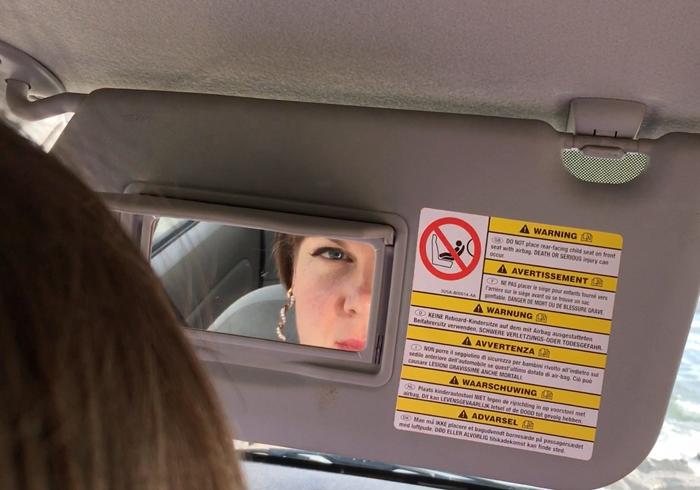The migration of experimental film from the cinema to the gallery has significantly altered – whether for better or worse – the forms that it takes, the histories in which it participates and the audiences that receive it. An innovative programme by Newcastle’s Tyneside Cinema seeks to partially redress that balance by smuggling four short moving image works (none running longer than six minutes) into the trailers preceding the screening of feature-length films at cinemas across the country this summer.
The more successful of these four commissions, which I saw at a special screening, work consciously with or against the contexts in which they will be seen. Nestled amidst bombastic adverts for superhero films and vapid Hollywood romcoms, James Richards’s Uncontrollable Universe (all works 2019), with its suffocating attention to symbols of mortality, is liable to unsettle. Opening with a digital animation of a dying white lily, the camera scans across a long, collaged patchwork of black-and-white images hinting at loss or absence – X-rays, medical equipment, old photographs – to the soundtrack of a (seemingly) human voice straining to sing a set of notes.
In its concentrated attention on human fallibility, the work undermines the state of passive reception of the reassuring fables (of human heroism, inevitable redemption and enduring love) upon which mainstream cinema depends. While Richards is able to draw the spectator into a contemplative state at odds with expectations of the multiplex experience, Evan Ifekoya’s Contoured Thoughts only seems ill-adapted to the form. The work tiles shots of the artist immersed to their neck in a body of water as if they were overlaid windows on a computer desktop, a trope of digital video that makes less sense at the different scale of a cinema screen. The work points – in its formal properties and through a sampled soundtrack – to issues of identity, subjectivity and affirmation, but does little to develop them. Given that these works will reach audiences beyond the small communities that regularly attend art galleries, it felt like an opportunity missed.
The five-minute promotional video is as much the province of popular music as contemporary cinema, and Susie Green & Simon Bayliss’s Big Talk plays like a chirpier cousin to David Bowie’s Ashes to Ashes (1980). Based in the North East, the pair (who together make music as Splash Addict) has created a pop video laden with kitschy special effects, in which they seem to move from the audience onto a stage, for a dance track driven by tinny synthesiser effects. As a work of art the production is slight, but the urge to transform the cinema into a concert hall and to incite in the spectator even the smallest urge to get up and dance makes for a gentle critique of our addiction to screens (of which cinema was, perhaps, the precursor). The punkish DIY aesthetic – as far removed from the airbrushed, CGI unreality of Hollywood cinema – is itself a reminder of the fact that culture belongs to, and can be made by, anyone.
The endangerment of communal culture by the Internet and tourism underpins Sophio Medoidze’s Xitane, set in Tusheti in northeast Georgia, a region recently connected to the world by the national government’s implementation of Wi-Fi. The film uses footage of Atengenoba, a traditional festival from which women are largely excluded (and which the artist must therefore shoot from a distance) to consider how progress and progressive principles are at odds with the indigenous cultures that Western tourists (and we can count artists and art audiences among them) are apt to fetishise. The artist’s ambition strains against the time allotted to the work, and indeed Medoidze reveals in a discussion after the screening that this is itself a trailer for a longer film for which she is fundraising. Like the commissioning project of which it is a part, Medoidze’s work leaves the impression of significant promise yet to be fulfilled.
Projections Commissions at Tyneside Cinema, Newcastle, 22 February –
From the April 2019 issue of ArtReview
